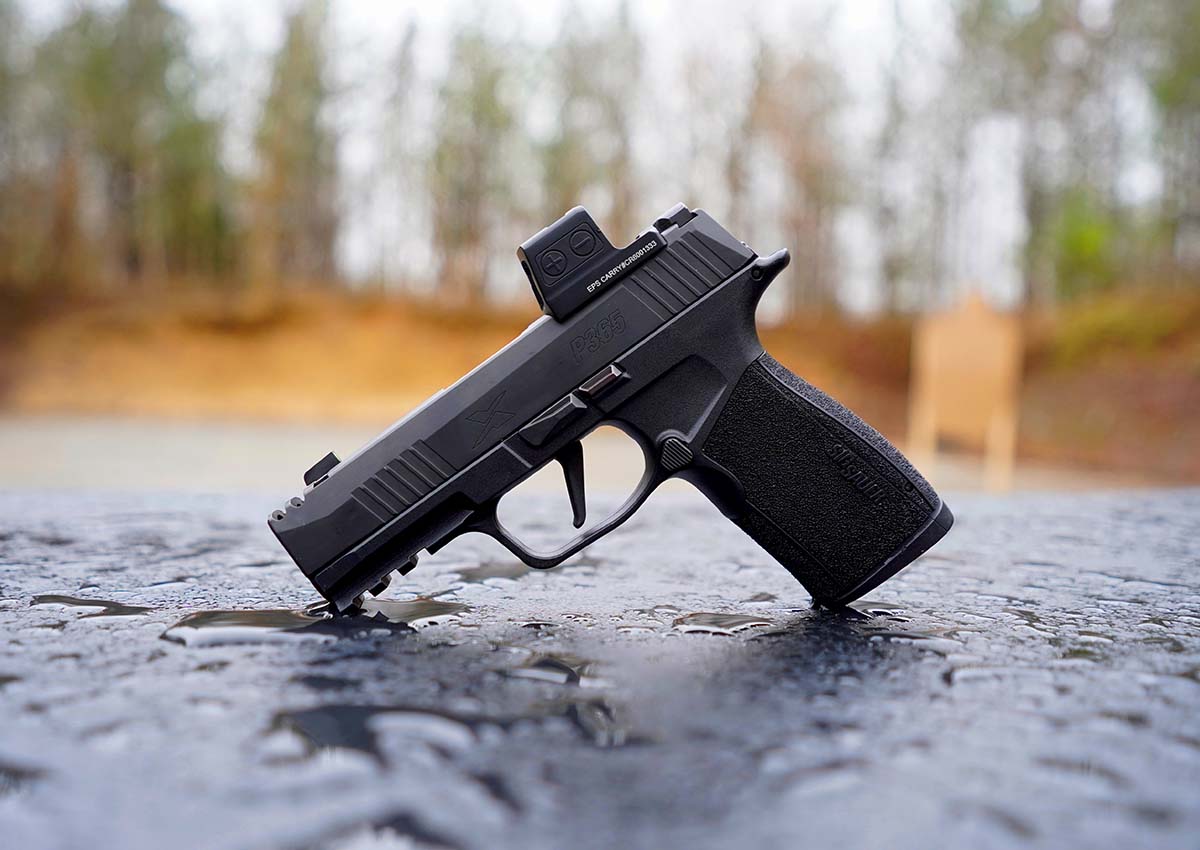Choosing a compact handgun for home defense is a significant decision that involves several considerations to ensure safety, effectiveness, and comfort. With the increasing need for household safety measures, selecting the right firearm that meets your specific needs can be daunting. Here our aim to guide you through the process, focusing on key factors such as caliber, reliability, ergonomics, capacity, safety features, training, legal considerations, and storage.
Understanding Caliber
The caliber of a handgun refers to the diameter of the barrel and, consequently, the size of the bullet that the firearm discharges. Common calibers for compact handguns include .380 ACP, 9mm, .40 S&W, and .45 ACP. Each caliber has its advantages and drawbacks in terms of stopping power, recoil, and ammunition cost. For home defense, 9mm is often recommended due to its balance between stopping power and manageable recoil, making it suitable for shooters of various experience levels.
Reliability
A home defense handgun must be reliable. It should fire every time the trigger is pulled without malfunctioning. Reliability is influenced by the firearm’s design, manufacturer’s quality control, and maintenance. Reputable brands known for producing reliable firearms include Glock, Sig Sauer, Smith & Wesson, and Ruger. Research and read reviews to understand the reliability history of a model you’re considering. The Sig P365 XMacro is a notable example, offering exceptional reliability in a compact frame.
Ergonomics and Handling
Ergonomics plays a crucial role in how well you can handle and shoot a handgun. A good fit allows for better control, accuracy, and confidence. When choosing a compact handgun, consider the grip size, trigger reach, and the overall feel in your hand. A visit to a gun store or range to handle various models can help determine what fits best.
Capacity
Capacity refers to how many rounds a handgun can hold. Compact handguns typically have a lower capacity than full-sized models, balancing size and firepower. While a higher capacity is advantageous, it often comes with increased size and weight. Consider your comfort and ability to handle the firearm versus the need for higher capacity.
Safety Features
Safety features are crucial to prevent accidental discharge, especially in a home defense scenario where stress levels can be high. Look for handguns with built-in safety mechanisms such as trigger safeties, grip safeties, or manual safeties. Understand how these features work and choose a model that aligns with your comfort and safety preferences.
Training and Practice
Proficiency with your chosen handgun is as important as the firearm itself. Regular training and practice are essential to ensure you can effectively use the weapon under stress. Consider enrolling in defensive shooting courses and practice regularly at a shooting range. Training also helps familiarize yourself with the firearm’s safety features and maintenance requirements.
Legal Considerations
Before purchasing a handgun for home defense, understand the legal requirements in your area. Laws regarding firearm ownership, storage, and use for self-defense vary widely. Ensure you’re compliant with local regulations, and consider obtaining a license or permit if required. Knowledge of self-defense laws is also crucial.
Secure Storage
Secure storage is essential to prevent unauthorized access to your firearm, especially if children are present in the home. Invest in a quality gun safe or locking device. Some safes offer quick access features, allowing for rapid retrieval in an emergency while keeping the firearm secure from unauthorized users.
Conclusion
Choosing a compact handgun for home defense is a personal decision that requires careful consideration of various factors. Balancing the need for stopping power with manageability, ensuring reliability, finding a comfortable fit, understanding capacity needs, prioritizing safety features, committing to training, adhering to legal requirements, and ensuring secure storage are all critical steps in the selection process. By taking the time to research and understand these aspects, you can select a compact handgun that provides effective home defense while ensuring safety and compliance with legal standards. Remember, owning a firearm for home defense also carries the responsibility of continuous learning and practicing safe handling to protect yourself and your loved ones effectively.

